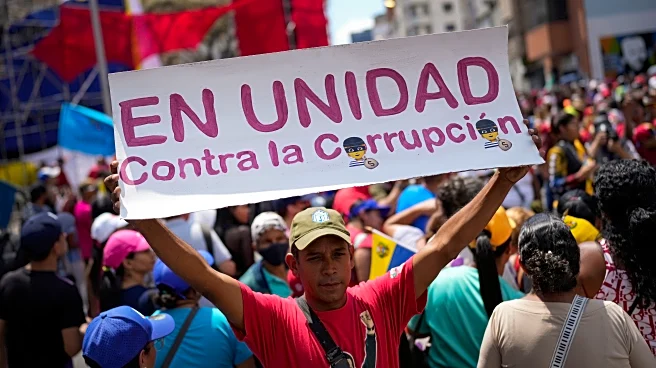Rapid Read • 8 min read
The World Health Organization (WHO) and the World Meteorological Organization have released a report highlighting the increasing risks of extreme heat in workplaces due to climate change. The report emphasizes that millions of workers are exposed to heat stress, which can significantly impact their health and productivity. The WHO calls for governments, employers, and workers to collaborate on developing adaptation strategies to mitigate these risks. The report notes that heatwaves are becoming more frequent, with the last decade recording the warmest temperatures. The WHO's director of environment, climate, and health, Rüdiger Krech, stresses the urgency of addressing this issue, as prolonged exposure to high temperatures can lead to severe health problems such as heat-related stress, stroke, and kidney failure.
AD
The implications of this report are significant for industries and workers worldwide, particularly in sectors like construction and agriculture, where outdoor work is common. As temperatures rise, productivity decreases, and workplace accidents increase, posing economic challenges. The report suggests that for every degree rise above 20°C, productivity falls by 2%. This could lead to substantial economic losses if not addressed. Additionally, the health risks associated with extreme heat could strain healthcare systems and increase medical costs. The report underscores the need for investment in adaptation measures, such as improved ventilation and air conditioning in workplaces and schools, to ensure safety and maintain productivity.
The report calls for immediate action from governments and industries to implement adaptation strategies. Some European countries have already begun taking steps, such as pausing construction work during peak heat hours. The WHO suggests that adaptation should involve consultation with all stakeholders, including local councils and health authorities. As climate change continues to drive extreme weather patterns, the need for comprehensive adaptation plans becomes more urgent. The report warns that failing to invest in these measures could lead to greater economic and health costs in the future.
The report also highlights the broader societal impacts of extreme heat, including its effects on vulnerable populations like the elderly and children. Schools, in particular, face challenges in maintaining a conducive learning environment during heatwaves. The WHO suggests that school uniforms and building designs should be reconsidered to better accommodate rising temperatures. This highlights the intersection of climate change with public health and education, emphasizing the need for holistic approaches to adaptation.
AD
More Stories You Might Enjoy













